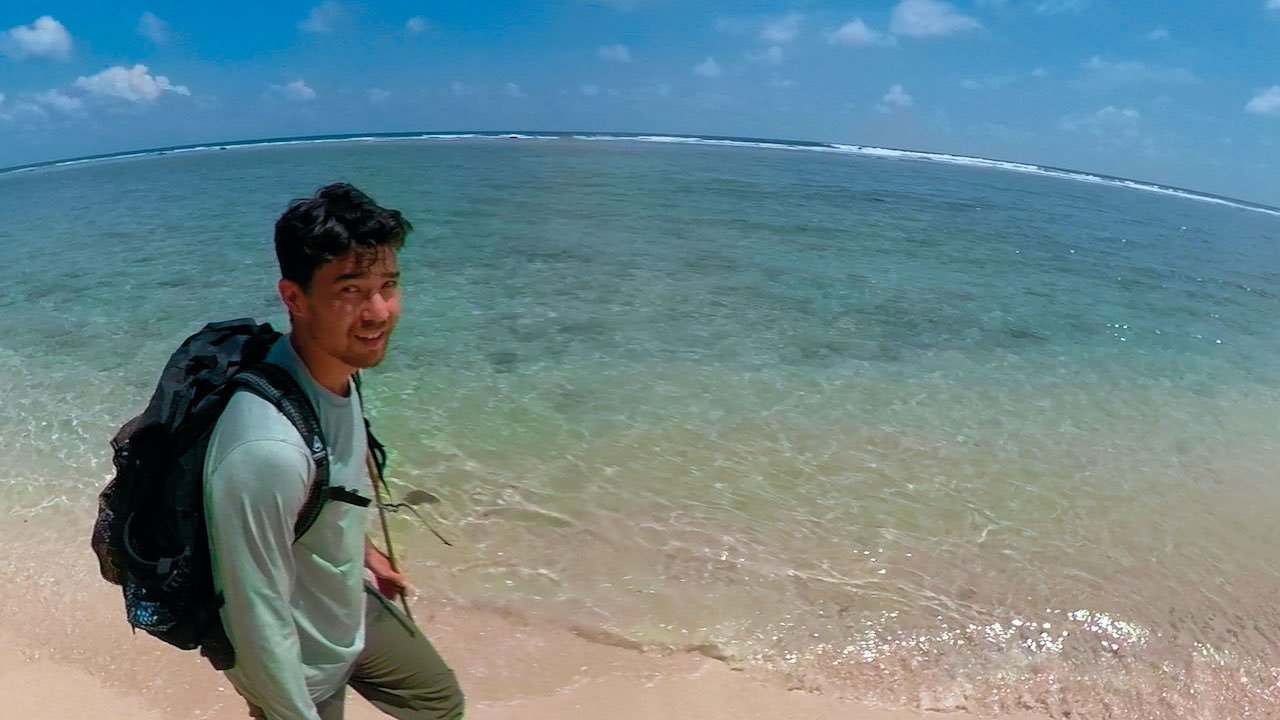The Mission
National Geographic Documentary FilmsNews stories broke around the globe in 2018 when Christian missionary John Chau was killed trying to make contact with the Sentinelese on North Sentinel Island. The Sentinelese have become largely recognized as one of the most isolated communities in the world. Partly due to the tribe's violent tendencies towards outsiders that has resulted in multiple deaths and modern legislation being passed to ban individuals from trying to get into contact with the group, an effort to protect both outsiders and the Sentinelese, little is known about the tribe. Chau saw introducing the tribe to Christianity as his calling from God, a pathway that would end with his young death at only 26. Directed by Jesse Moss and Amanda McBaine, the pair behind 2020s Boys State, The Mission looks to not only capture the story behind Chau's death but also examine the concept of religious missionary work towards isolated indigenous populations as a whole.
Inherently, this is a large task for the film to hold. Cultural anthropology has centuries of history and moral debate behind it leading to a topic that could be looked at and debated endlessly. Pairing this with a tragic story of a complex individual and trying to not only tell his story but also find a deeper understanding of both the causes and effects of his work creates a film of two weighted sides. While this is something the directors teased with in Boys State, a documentary showcasing a Boys State program in Texas that also hopes to find a meditation on the state of modern politics, The Mission is clearly a much larger swing.
While there are obvious moments where the runtime feels stretched and pulled between these two sides with some of the structuring of the film leaving something to be desired, the film does a rather wonderful job at diving into both of these concepts and using them to build to a final single statement of worth. First focusing on the story of John Chau, the film immediately walks a tightrope of bringing to life a figure who has played ignorant to causing incredible harm and damage while also attempting to find the humanity behind him. The film uses Chau's journals and extensive history online to paint an authentic picture of Chau with the film settling on a scathing rejection of the figure. The film isn't afraid to reveal the darker and more manipulated side to Chau's actions and never allows the figure to get away with coming off as an innocent victim.
The film is mature in voice as it is able to have this message and directed judgment without negating the more complex conversations to be had as far as the motivations Chau carried. While the film clearly does hold Chau responsible for his actions, it also allows for larger conversations surrounding the role of religion and other individuals within Chau's life who supported his delusions and encouraged him to go on this path. The film allows both those supportive and against religion to speak their truths regarding Chau without ever losing its own perspective and takeaways which is crucial when dealing with a subject such as this.
The Mission uses this individual story to connect to a larger message surrounding religious missionary work towards isolated indigenous groups. National Geographic Documentary Films has embraced this style of storytelling countless times before; from Playing with Sharks placing the Valerie Taylor story alongside a narrative surrounding the damaging effects of media representation for animals to Fire of Love using the story of Katia and Maurice Krafft to create a dissertation on love, and again finds great success. Largely due to the array of voices the film has access to through interviews and archival media, the film showcases both sides of the conversation before ultimately landing on an explicit renouncing of the concept and offering a terrifying look at how the misguided ideals of Chau continue to live on.
While some might be frustrated at this direct moral conclusion from the film, it feels absolutely necessary in this context. While some might point to those like author Jon Krakauer and filmmaker Werner Herzog who have created incredibly open-ended moral conversations looking at tragic stories of human endeavor with their works Into the Wild and Grizzly Man, The Mission and the tale of John Chau is simply not a narrative that can be handled with the same touch. Chau's mission is one that ignores obvious logic and scientific knowledge that places not just himself, but this entire community at physical risk. The stakes are not a personal tragedy but a disastrous annihilation of an isolated group for nothing but the realization of individual delusions. The film allows for those with first hand knowledge and experience of the trauma that can be caused due to these efforts to express themselves and build this conclusion not solely based on a rejection of the power of faith, but from grounded truth surrounding what the physical effects of these efforts can be. It would be dangerous and ignorant filmmaking to host a conversation surrounding these topics and not come to such a clear final statement and it should be applauded that the film is willing to be as direct as it is.
While Boys State showed promise for Jesse Moss and Amanda McBaine, The Mission is a true realization of their skill. Taking two incredibly large conversations and somehow finding a way to successfully have both, both individually and in conversation with each-other, in a rather clean 103-minute runtime is a testament to their cinematic voice and ability.


